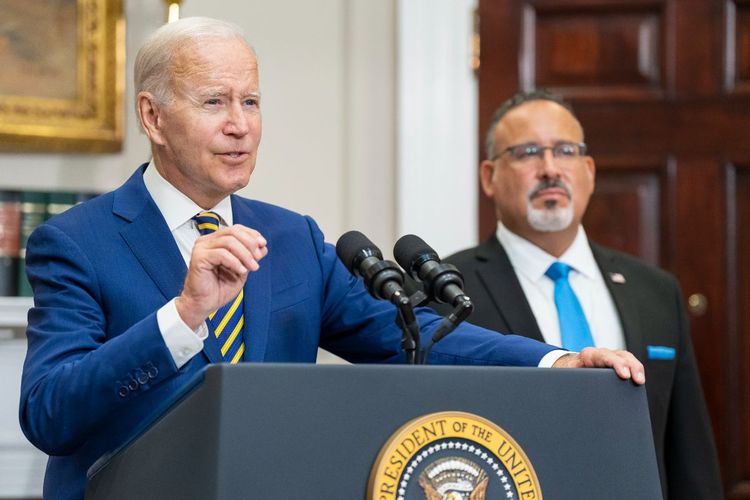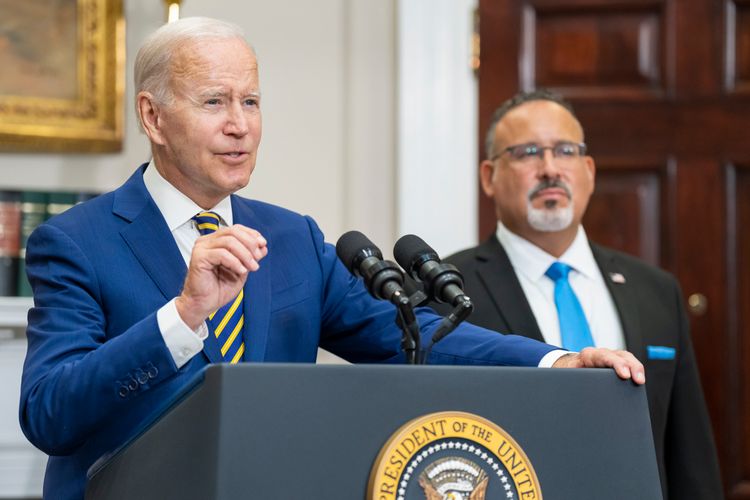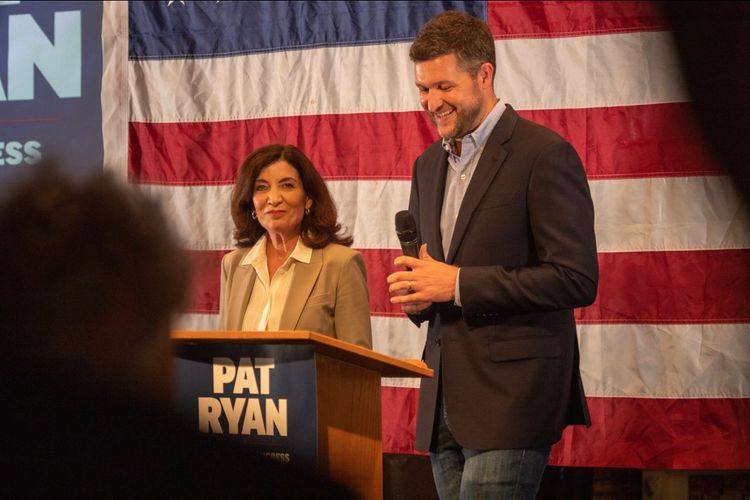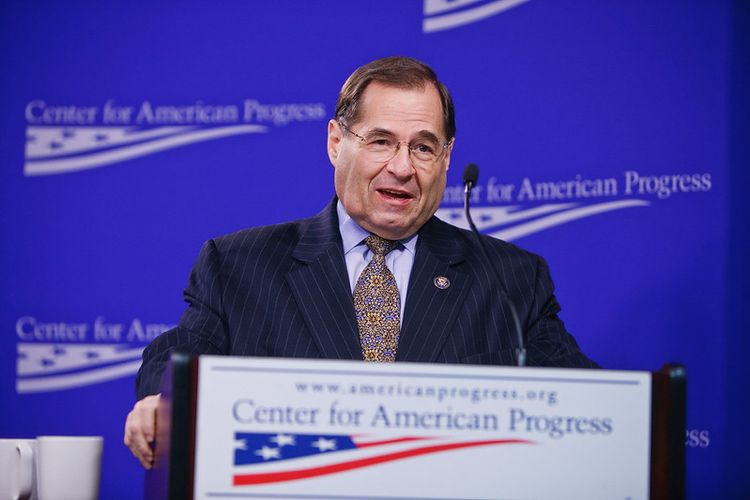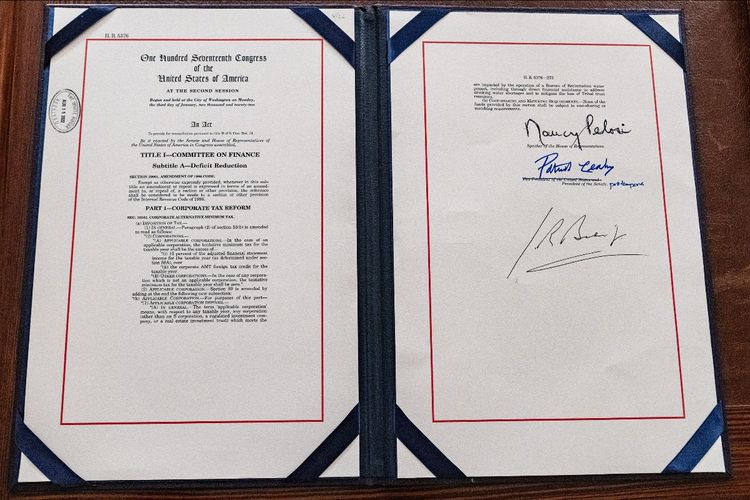Wake Up To Politics - February 14, 2021
Good morning! It’s Monday, February 15, 2021. Election Day 2022 is 631 days away. Election Day 2024 is 1,359 days away. Happy Presidents’ Day! Make sure to hug a commander-in-chief today.
Senate acquits Trump on incitement charge
The U.S. Senate voted on Saturday to acquit former President Donald J. Trump of the charge of inciting an insurrection at the U.S. Capitol, the second time in just over a year that Trump survived a fight over impeachment.
The vote was 57-43, with seven Republicans joining all 50 Democrats to find the former president guilty. It was the most bipartisan vote to convict a president in U.S. history, out of the four presidential impeachment trials that have been held, although the tally fell well short of the 67 votes needed for Trump to be convicted.
Trump’s acquittal came after a short five-day trial in the Senate and less than 40 days after the deadly Capitol riot that he was accused of fomenting. Five people, including a Capitol Police officer, lost their lives due to the attack, which took place amid Trump’s refusal to accept his election loss to President Joe Biden.
Here are answers to some key questions about the impeachment trial verdict:
Who were the Republican votes for conviction? Republican Sens. Richard Burr (NC), Bill Cassidy (LA), Susan Collins (ME), Lisa Murkowski (AK), Mitt Romney (UT), Ben Sasse (NE), and Pat Toomey (PA) voted to convict Trump, an extraordinary break with the former president from within the ranks of his own party.
Most of the seven Republicans won’t be facing voters for several years, or ever again: Burr and Toomey are retiring in 2022, while Cassidy, Collins, and Sasse just won re-election last year and won’t be up for re-election again until 2026. Romney’s current term expires in 2024; only Murkowski faces re-election next year, although Alaska’s ranked-choice voting system insulates her from the threat of a primary challenge.
What does the vote say about the future of the GOP? While the seven Republican votes to convict mark a historic rebuke for a president, the 43 Republican senators who voted to acquit are probably a better sign of where the party is headed. The vast majority of Republicans stood by Trump in their highest-profile opportunity to banish him from the political arena, a clear indication of the firm — if slightly weakened — grip that he retains on the GOP.
That dynamic has been underlined by the consequences already being faced by the Republicans who crossed party lines. The Louisiana state GOP censured Cassidy within hours of his conviction vote; the state party in North Carolina plans to similarly punish Burr tonight. The message is plain: with Republicans out of power in Washington, it is the former president in Palm Beach who remains the divided party’s principal leader.
What happened with witnesses? The acquittal vote followed a brief back-and-forth on Saturday about whether to call witnesses as part of the trial. After the House impeachment managers blindsided both Senate Democrats and Trump’s defense team with a request to hear testimony from Rep. Jaime Herrera Beutler (R-WA), the Senate voted 55-45 to allow witnesses — briefly making it seem as though the trial would be prolonged.
However, after a furious few hours of negotiations, the managers and defense attorneys struck an agreement to enter a statement from Herrera Beutler into the record instead of having her testify. The Washington congresswoman, who was one of 10 House Republicans to vote to impeach Trump last month, revealed House Minority Leader Kevin McCarthy (R-CA)’s account of his phone conversation with the former president on January 6. According to Herrera Beutler, McCarthy told her that Trump seemed to praise the rioters during the phone call: “Well, Kevin, I guess these people are more upset about the election than you are,” he is alleged to have said.
The Democratic surrender on witnesses reflected the bipartisan desire to move past Trump after five long days of relitigating his conduct, which came after four long years of doing the same.
What does Trump do next? If Trump had been convicted by the Senate, he might have also been disqualified from holding future office in the United States, as outlined in the Constitution. But after his acquittal, the possibility of a Trump 2024 comeback bid for the presidency remains alive. Indeed, Trump made clear in a statement celebrating the Senate vote that he will not be going away. “Our historic, patriotic and beautiful movement to Make America Great Again has only just begun,” the former president said. “In the months ahead I have much to share with you, and I look forward to continuing our incredible journey together to achieve American greatness for all of our people.”
But Trump does still face some legal exposure for his post-election conduct, as the Fulton County District Attorney and D.C. Attorney General continue to investigate him. An unlikely figure reminded viewers of those legal threats after the impeachment trial came to a close: Senate Minority Leader Mitch McConnell (R-KY). McConnell may have voted to acquit Trump, but he followed it by harshly denouncing the former president for committing a “disgraceful dereliction of duty” on January 6.
McConnell underlined his view that, even though he found Trump to be “practically and morally responsible for provoking” the Capitol riot, he does not believe that the Senate has the constitutional jurisdiction to try a former president. But the Kentucky Republican came surprisingly close to calling for Trump to face criminal prosecution for his actions: “President Trump is still liable for everything he did while he was in office as an ordinary citizen,” McConnell said. “He didn’t get away with anything. Yet.”
What happens now in Washington? After four years of dominating headlines in the nation’s capital, the Trump show will become temporarily muted. Attention will turn instead to Biden, who has had to share a split-screen with his predecessor for the first four weeks of his administration. Congress will resume confirming Biden’s nominees working on his $1.9 trillion coronavirus relief plan, which Democrats are hoping to have passed by mid-March.
Thanks for waking up to politics! If you enjoy reading this newsletter, I’d be so grateful if you’d consider donating to help support me and my work. If you want to show off your support for Wake Up To Politics, you can also buy some merchandise.
Also: don’t forget to tell your friends and family to sign up for the newsletter at wakeuptopolitics.com. And if you have any questions or comments, feel free to email me at any time.
THE RUNDOWN
— Cases of coronavirus are dropping in the United States and vaccinations are rising, but officials continue to face scrutiny for their response to the pandemic. Gov. Andrew Cuomo (D-NY) is under fire after his top aide privately admitted that his administration covered up the COVID-19 death toll in New York nursing homes, while the CDC faces criticism that they are moving too slowly to recommend in-person learning return to American schools.
— White House deputy press secretary TJ Ducklo resigned on Saturday after a Vanity Fair report that he verbally harassed and threatened a journalist.
— 2020 presidential candidate Andrew Yang has exceeded the donation requirement to obtain matching public finds in the New York City mayoral election, as he continues to top polls of the race. On the Republican side, renewed speculation is flying about former presidential daughter-in-law Lara Trump running for Senate next year in North Carolina.
DAYBOOK
President Joe Biden spent the weekend at Camp David, the presidential retreat. He will depart Camp David at 2:15 p.m. and arrive back at the White House at 3:10 p.m.
Vice President Kamala Harris has no public events scheduled.
White House Press Secretary Jen Psaki will not hold a press briefing.
The Senate is not in session.
The House will briefly convene at 9:30 a.m. for a pro forma session.
The Supreme Court is not in session.

